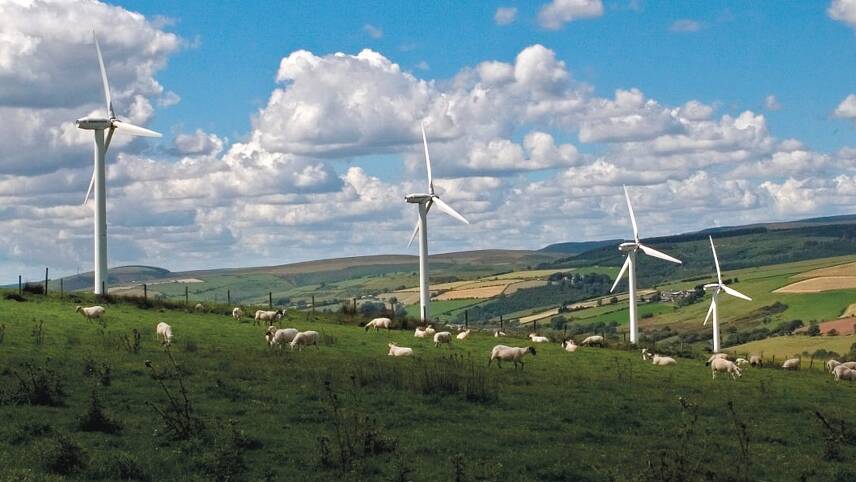You’ve reached your limit!
To continue enjoying Utility Week Innovate, brought to you in association with Utility Week Live or gain unlimited Utility Week site access choose the option that applies to you below:
Register to access Utility Week Innovate
- Get the latest insight on frontline business challenges
- Receive specialist sector newsletters to keep you informed
- Access our Utility Week Innovate content for free
- Join us in bringing collaborative innovation to life at Utility Week Live

Local authorities in England need to “roll up their sleeves” and designate suitable areas for onshore wind projects, the head of renewable energy investor Thrives Renewables has told Utility Week.
Managing director Matthew Clayton was responding to the government’s announcement that a Contracts for Difference (CfD) auction for more established technologies, including onshore wind and solar, will be held in 2021. The last such auction took place in 2015.
The same year the UK government transferred consenting powers for onshore wind projects of more than 50MW from the Planning Inspectorate to local authorities.
It also introduced new guidelines, stipulating that local authorities should only grant permission to projects if they are located within areas identified as suitable in a local or neighbourhood plan and have the backing of the affected communities.
There are different arrangements in Scotland and Wales, where they are set by the devolved governments.
“For the last three or four years we’ve had the dual challenge of no revenue certainty and also particularly in England – less in Wales, and much less so in Scotland – we’ve got the national planning guidance which creates a significant barrier to the sector,” said Clayton.
Whilst he welcomed the return of financial support for onshore wind and solar, Clayton warned that “until local authorities put together neighbourhood plans, then still there’s effectively a block on new developments in England”.
He added: “The local authorities should roll up their sleeves, in the context of many of them announcing climate change emergencies and declaring their net zero ambitions, and designate areas where renewables should be built so that then developers can focus their attention on those areas.”
He said the number of councils which have already done this is “very limited”.
Alternatively, Clayton said the government’s planning guidance needs to change to “introduce a more dynamic relationship between the local authority, the community and the developer to make sure that sites are developed in a responsible way.”
“There should be a positive driver within the planning system not the negative one that exists at the moment,” he added.
The fresh auction for onshore wind and solar projects was confirmed yesterday in a new consultation, which also proposed a series of changes to the CfD scheme and other related policies.
Among other things, the Department for Business, Energy and Industrial Strategy said it would update the existing guidance for developers on community benefits to reflect best practice from across the industry. It said developers should be encouraged to provide opportunities for local communities to invest in projects and that any commitments should be honoured for the full lifetime, regardless of any changes in ownership.
Clayton welcomed the consultation’s emphasis community support, saying: “We’re really pleased to see the importance that’s being put on both community involvement and the opportunity for communities to invest.”
He said consideration also needs to be given to those who cannot afford to invest, suggesting that low-carbon power could be supplied to local authorities to help them save money as a form of community benefit: “The ownership opportunity is we think important and it really engages with a wide group of people. But ultimately, investment is a luxury which isn’t available to everyone so being able to demonstrate the benefit to everyone is a really positive thing.”




Please login or Register to leave a comment.